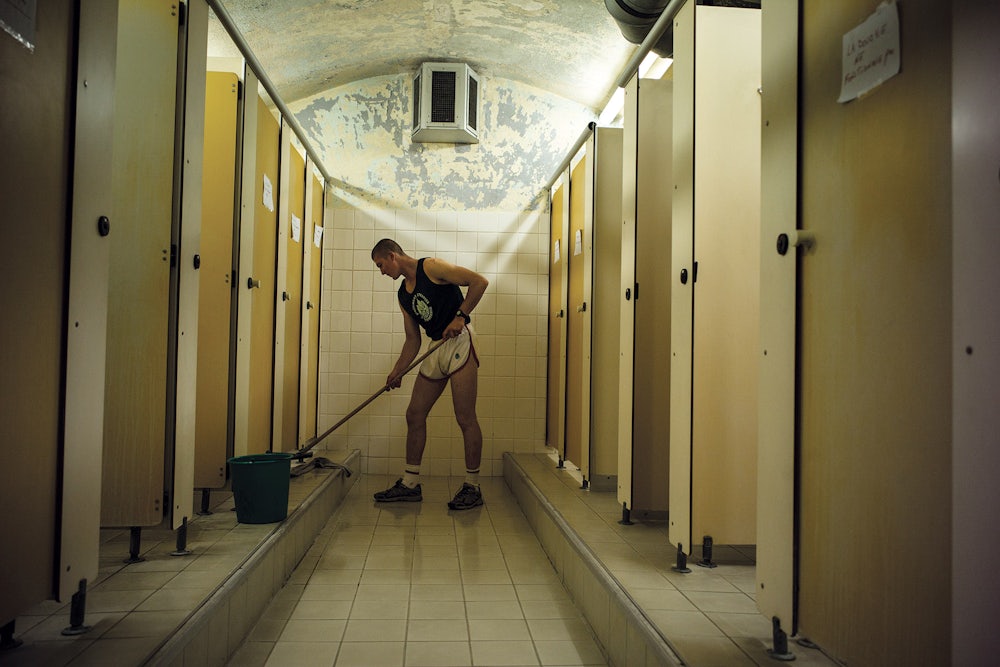Military service is often the chosen path of those with a patriotic calling. But for the men of the French Foreign Legion, the country they’re trained to fight and die for isn’t their own. Volunteers come from all over the world—Panama, Slovakia, the United States—to be sent to some of the most far-flung and dangerous posts occupied by French forces: Afghanistan. Somalia. Chad.
For many young men, however, like the 18-year-old Ukrainian pictured, the Foreign Legion is an escape from harsh conditions at home. As a recruit, he’s able to earn more than he would in the Ukrainian military and send money back to his family.
“The Foreign Legion became an opportunity for many to start a new life,” said photographer Edouard Elias, who was embedded with a unit in the Central African Republic in 2014 and returned to France the next year to document their training. Under the Legion’s culture of anonymity, Legionnaires are required to give up their civilian identities and assume new names. They can revert to their old names after a year, though many decide to let them go for good.
Basic training is physically and mentally grueling—it includes days-long marches and outdoor overnights in the rain. Members of the diverse units often aren’t able to communicate except in simple French. Women are not allowed to apply.
But to the men who make it, their unit becomes their family. The Foreign Legion’s motto is, tellingly, not a pledge of allegiance to France, but to one another. It reads: “Legio Patria Nostra.” The Legion is our homeland.
This week, Edouard Elias takes over the New Republic’s Instagram account with his photo essay on the Legionnaires at @NewRepublic.

